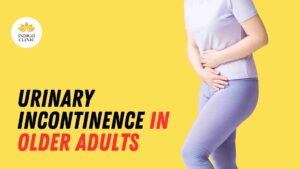


What is Menopause and HRT?
Menopause is the permanent cessation of menstruation at the end of reproductive life due to loss of ovarian follicular activity. The clinical diagnosis is confirmed following the stoppage of menstruation for twelve consecutive months without any other pathology. Few years prior to menopause, along with the depletion of the ovarian follicles, the follicles become resistant to pituitary gonadotropins. As a result, effective folliculogenesis is impaired with diminished estradiol production.
This decreases the negative feedback effect on hypothalamo-pituitary axis resulting an increase in FSH. This increase is also due to diminished inhibin. The sustained levels of estrogen may even cause endometrial hyperplasia and clinical manifestation of menstrual abnormalities prior to menopause.
Ultimately, no more follicles are available and even some exist, they are resistant to gonadotropins. Estradiol production drops down to the optimal level of 20pg/ml; no endometrial growth; absence of menstruation.
The symptoms experienced during and following the menopausal transition vary substantially from person to person. For some, symptoms can be severe affecting daily activities and quality of life.
Vasomotor symptoms – The characteristic symptom of menopause is ‘hot flush’. It is characterised by sudden feeling of heat followed by profuse sweating. May be associated with palpitation, fatigue and weakness. The physiologic changes with hot flushes are perspiration and cutaneous vasodilation. Sleep may be disturbed due to night sweats.
Genito urinary system – Estrogen deficiency produces atrophic epithelial changes in vagina, urinary bladder and the urethra. This may cause dyspareunia and dysuria.
Dyspareunia and sexual dysfunction – Estradiol deficiency leads to vaginal dryness or atrophy. Estrogen replacement may be given orally or vaginally. Risks of endometrial hyperplasia is less with vaginal tablets than that of creams. Estrogen deficiency is often associated with decreased sexual desire.
Vagina – Minimal trauma may also cause vaginal bleeding. Dyspareunia, vaginal infections, dryness, pruritis and leukorrhoea are also common. Urinary symptoms includes urgency, dysuria and recurrent urinary tract infections and stress incontinence.
Skin and hair – There is thinning, loss of elasticity and wrinkling of skin. ‘Purse string’ wrinkling around the mouth and ‘crow feet’ around the eyes are characteristics. After menopause, there is some loss of pubic and axillary hair and slight balding. This may be due to low level of estrogen with normal level of testosterone.
Dementia and psychological changes – Estrogen improves cerebral perfusion and cognition. It is not clear whether estrogen therapy dementia and Alzheimer disease. There is increased frequency of anxiety, headache, insomnia, irritability, dysphasia and depression.
Osteoporosis and fracture – Common fracture sites are vertebra, femoral neck and the wrist bones.
Cardiovascular effects – Risks of ischemic heart disease, coronary artery disease and stroke are increased due to estrogen deficiency.
Hormone Therapy:
It is indicated in menopausal women to overcome the short and long term consequences of estrogen deficiency.
Benefits of hormone therapy – improvement of vasomotor symptoms, improvement of urogenital atrophy, increase in bone mineral density, decreased risk in vertebral and hip fractures, reduction in colorectal cancer and possibly cardioprotection.
Special group of women to whom HRT should be considered – premature ovarian failure, gonadal dysgenesis and surgical/radiation menopause.
Risks of hormone therapy:
Endometrial cancer; when estrogen alone is given to a women with intact uterus, it causes endometrial proliferation, hyperplasia and carcinoma. So progestin should be added to estrogen replacement therapy to counterbalance risks. Breast cancer; Combined estrogen and progestin replacement therapy for a long term, increases the risk of breast cancer slightly. Venous thromboembolic disease; Occurs with the combined use of oral estrogen and progestin, transdermal estrogen use can be used instead. Coronary artery disease and increased risk of gall bladder disease has been observed with HRT.
Contraindications of HRT :
Undiagnosed genital tract bleeding, estrogen dependent neoplasm in the body, history of DVT or active DVT, active liver disease, gallbladder disease, known or history of breast cancer.
Preparations of HRT:
Commonly used estrogens are conjugated estrogen or micronized estradiol. Progestins are medroxy progesterone acetate, micronized progesterone or dydrogesterone. Dose interval may be modified as daily for initial 2-3 months then it may be changed to every other day for another 2-3 months and then every third day for the next 2-3 months. Conjugated equine estrogen 0.3mg is given to women who had hysterectomy. Estrogen and cyclic progestin for women with intact uterus.
Subdermal implants are inserted subcutaneously over the anterior abdominal wall, suitable in patients with hysterectomy. 17B estradiol implants 25mg/50mg/100mg can be kept for 6 months. Percutaneous estrogen gel (1g) applicator of gel, delivering 1mg of estradiol daily, applied on the skin over the anterior abdominal wall. Trandermal patch contains 3.2mg of 17B estradiol, releasing about 50ug of estradiol in 24 hours. It should be applied below the waist line and changed twice a week.
Vaginal cream Conjugated equine vaginal estrogen cream 1.25mg daily is very effective when associated with atrophic vaginitis. It also reduces urinary frequency, urgency and recurrent infections. Progestins in patients with history of breast carcinoma or endometrial carcinoma. LNG-IUS with daily release of 10mg of levonorgestrel per 24 hours.
References:
Zetterberg M. Age related eye disease and gender. 2016;83:19-26. Doi: 10.1016/j.maturitas.2015.10.005.
Emmerson E, Hardman MJ. The role of estrogen deficiency in skin ageing and wound healing. 2012:13:3-20.
Utian WH, Woods NF. Impact of hormone therapy of life after menopause. Menopause. 2013;20:1098-1105.
Wierman ME, Artl W, Basson R, et al. Androgen therapy in women. J Clin Endocrinol Metab. 2014;99:3489-3510.
Nedergaard A, Henriksen K, Karsdal MA, Christiansen C. Menopause, estrogens and frailty. Gynecol Endocrinol. 2013;29:418-423.
